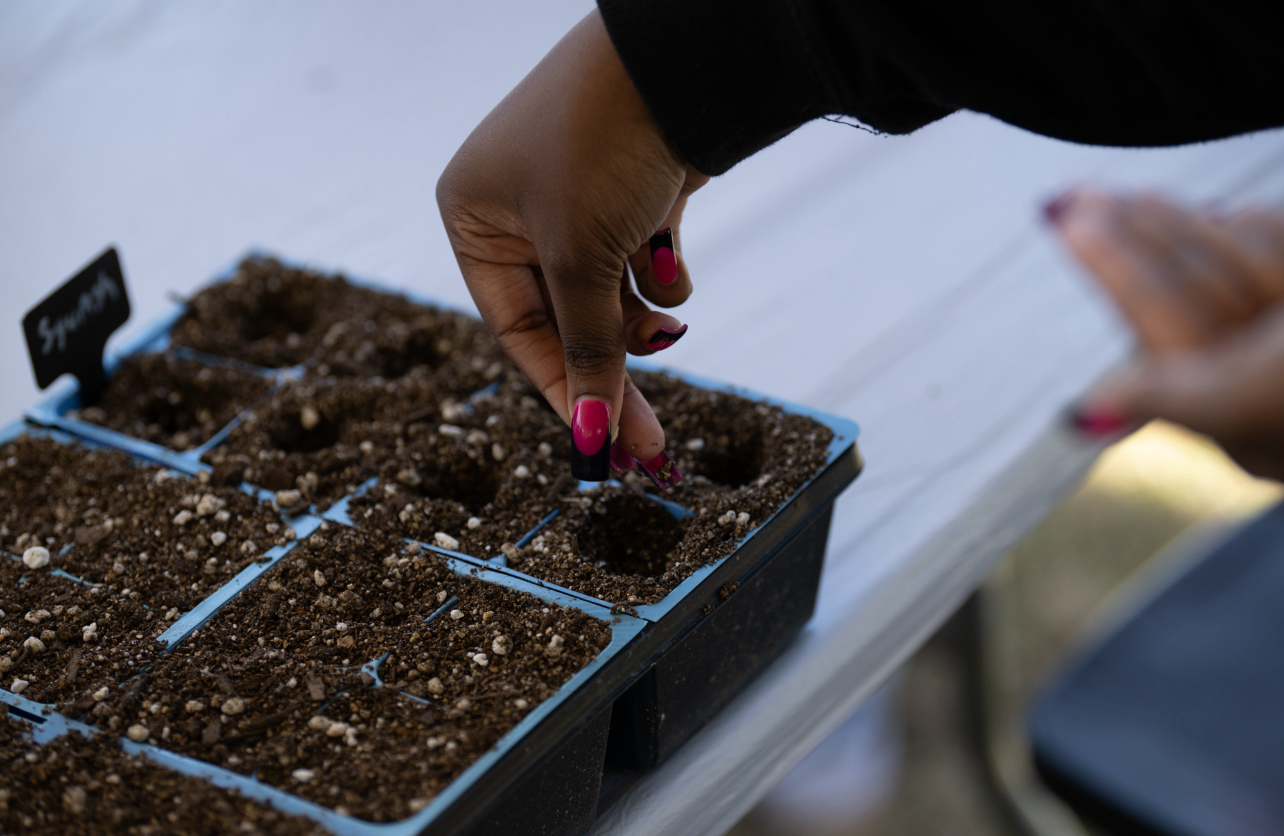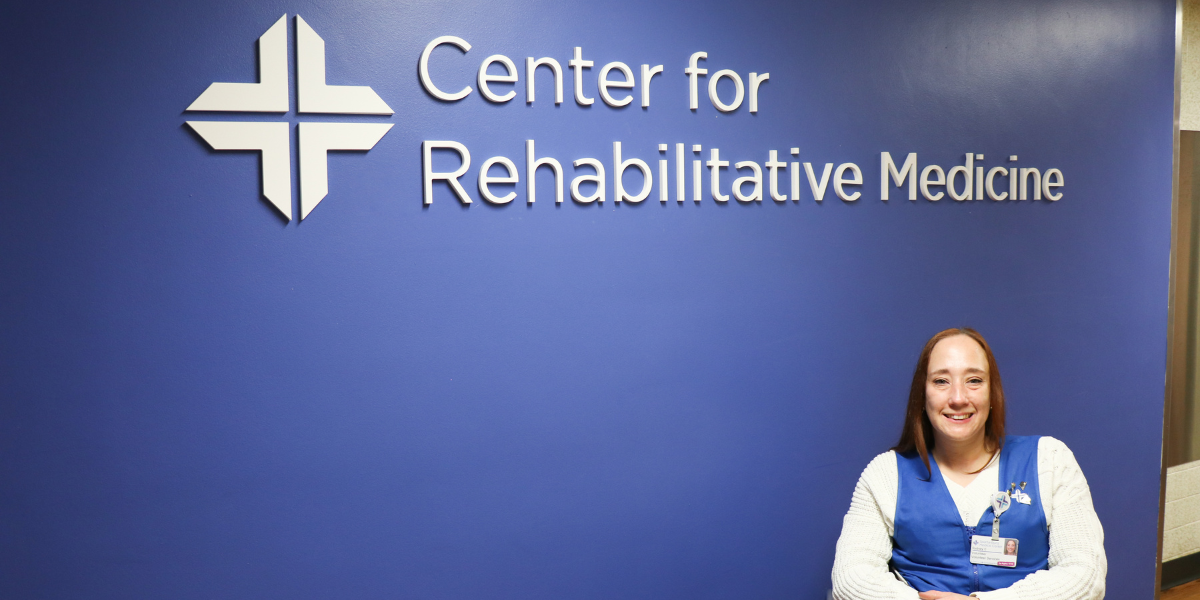
Building a community
At one time, Lauren Rogers planned to become a speech pathologist, or find work in the corporate arena.
“I never would have considered construction,” she said.
Now 28, Rogers owns her own business, IB Industries, and employs eight people. The company focuses on construction worksite cleanup.
It's named after her grandfather, Izell Black, himself a retired construction worker.
“My grandfather is still wrapping his head around me working in construction,” Rogers said.
Her training comes from an unlikely source – Spartanburg Regional Healthcare System.
Plumbers. Electricians. Carpenters. They're all essential to a hospital system that is constantly growing. They're also hard to find in today's economy.
“Right now, hiring skilled labor is a next-to-impossible task,” said Jason Head, construction-renovation manager at Spartanburg Regional. “It's harder and harder to find people who are trained and know how to do the work on day one.”
So, Spartanburg Regional leaders decided to train their own.
In 2016, the health system teamed with Spartanburg Community College and the National Center for Construction Education and Research, a nonprofit that provides global training and certification. Together, the three entities began offering construction skills training to area residents.
The result is known as the Spartanburg Construction Training Program.
Community members sign up for classes in construction and specialty training in carpentry, plumbing and electrical construction. Most of the students came from the Northside neighborhood in Spartanburg, an area experiencing a renaissance as community leaders work together to alleviate high unemployment and poverty.
While there are fees associated with the class, scholarships provided by community organizations have covered the costs.
The nonprofit SC Works pays the trainees' wages during the 12- to 16-week internships. Spartanburg Regional benefits from having a lengthy interview process where Head and other supervisors get to know a great deal about the work habits of potential job applicants.
“This essentially is a three-month interview,” Head said.
The program has many partners – Spartanburg Regional, the Northside Development Group, the City of Spartanburg, the Upstate Workforce Board and OneSpartanburg.
It's working. After passing individual certification tests, students are finding jobs. Five graduates were hired by contractors used by Spartanburg Regional. Others have been hired soon after they earn their certifications.
The certifications qualify workers for construction jobs anywhere in the U.S., thanks to the involvement of the community college and the National Center for Construction Education and Research.
For Rogers, going into the construction industry isn't just about finding a good job. It's about changing perceptions about careers in the trade industries.
“It's more than just labor,” Rogers said. “‘Trade' was a bad word. You think of it as lowly, but trades are needed.”
As a black woman, Lauren is an anomaly in the industry. Only 9.1 percent of the construction labor force are women, according to the U.S. Department of Labor. Only 6.1 percent of the labor force are designated by the department of labor as black or African American.
IB Industries is one of only two minority-owned construction-related businesses in the city of Spartanburg.
Rogers heard about the classes through the Northside Initiative Program. She enrolled in March 2018.
The construction training partnership puts anyone who finishes it in a position to earn more than many people who graduate from college with a four-year degree, Head said.
“It's a win-win for us and a win-win for students,” Head said.
The cost of providing the training is minimal. Most of the students receive scholarships through the Northside Development Group, and Head's staff trainers do not take a salary.
Classroom time is one to two hours, Monday through Thursday, Head said.
“Once students are out of the class, they go to the jobsite and work with one of our foremen, hanging sheetrock or doing other work and being evaluated,” Head said.
Rogers took full advantage of her classes. She learned to read blueprints and business management from Head, who became a mentor.
She took an electrical course with Doug Dills, director of facilities for Spartanburg Regional. Under his tutelage, Rogers installed electrical equipment for the first time.
“He challenged me to rise above and ask questions,” Rogers said.
The class taught Rogers to evaluate project cost based on square footage, a skill essential to her worksite cleaning business. It also allowed her to establish a crucial relationship with Spartanburg Regional.
“She is an approved vendor for the hospital,” Head said.
When Lester Johnson decided to take the class, he had some construction experience running his own business. He wanted to learn more about electrical and plumbing work.
“The plumbing aspect of the class opened my eyes,” Johnson said.
After graduating and earning his certification, Johnson was hired as a second-shift mechanic by Spartanburg Regional, which has changed his life.
“Now I have more income and insurance,” he said. “I ran a small business but wanted to get my foot in the door, and this has helped.”
Before the Construction Training Program, Stephen Hill was unemployed – and homeless.
“When I found out about this Northside program, it was near me,” Hill said. “It was in Spartanburg, and all I needed was the transportation to get to class.”
Head picked Hill up to go to class. He taught Hill about carpentry.
“After class and after the whole program was over, I started earning money,” Hill said. “I went out and saved up my money and found an apartment.”
Over the years, Spartanburg Regional has invested heavily the revitalization of the Northside community, Spartanburg Medical Center President Phil Feisal said.
“We've sat on boards, we've committed our dollars, we've volunteered, we've held job fairs,” Feisal said.
Renee Romberger served as a driving force behind the construction program's creation. A retired vice president of community health policy and strategy for Spartanburg Regional, Romberger was recently awarded South Carolina's highest civilian award, the Order of the Palmetto.
With support from Romberger and Spartanburg Regional's leadership, Head's hard work made the program a reality.
The Construction Training Program is a shining example of the many partnerships that are transforming the Northside. And while Spartanburg Regional has been able to fill its own needs with the program, graduates can take their certification and get a job “within our community or beyond.”
Feisal credited the leadership of the facilities and human resources department at Spartanburg Regional.
“We have created jobs for folks that live in Northside,” Feisal said, “and these jobs are life-changing for these individuals.”
For information about enrolling in the Spartanburg Construction Training Program, please call the Northside Development Group at 864-598-0097.
Jessica Pickens and Darrel Thomas contributed to this report.











